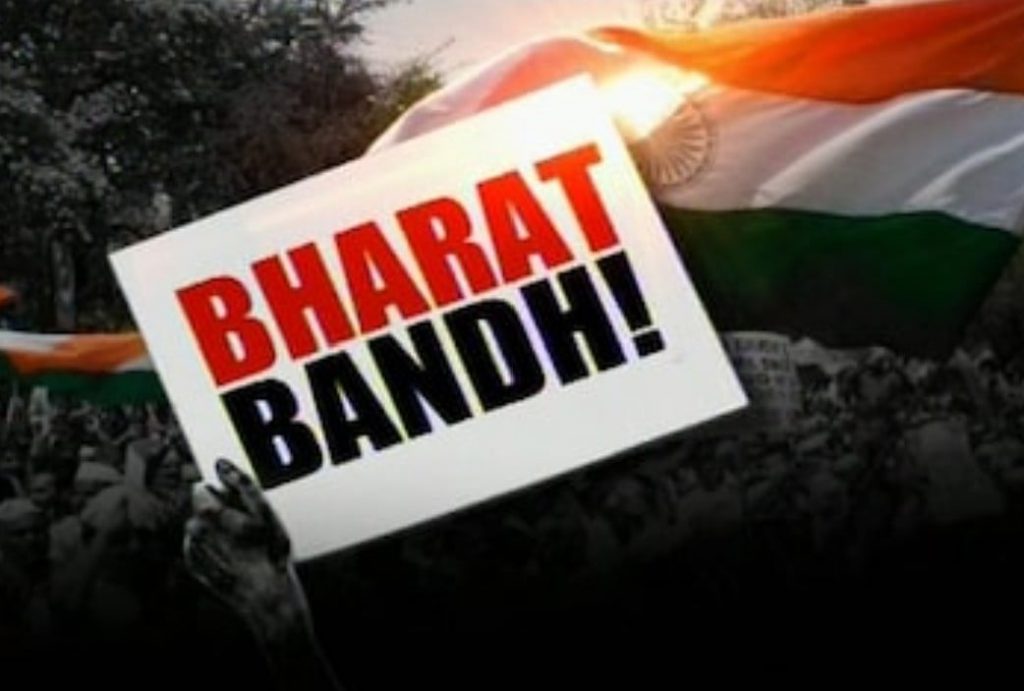Bharat Bandh : The Joint Central Trade Union Forum, which has called for a two-day strike that began on Monday, said bandh-like situation prevailed in at least eight states due to the nationwide strike against various government policies.

New Delhi: The nationwide (Bharat Bandh) strike to protest the policies of the Union Government has entered its second day and is expected to hit banks, public transport and other services again on Tuesday (29th March 2022). However, basic services such as health care, electricity and fuel supply could remain unchanged as on day one.
Public offices and educational institutions should also not be affected by the strike (Bharat bandh), which nearly a dozen unions have called. The joint central trade union forum that called for the two-day strike that began on Monday said the Bandh-like situation prevailed in at least eight states due to the nationwide strike against various government policies.
Some bank branches, especially in cities with strong unionism, carried out very limited public over-the-counter operations such as cash deposits and withdrawals. “There is a Bharat Bandh-like situation in Tamil Nadu, Kerala, Pondicherry, Andhra Pradesh, Telangana, Odisha, Assam, Haryana and Jharkhand,” the forum said in a statement on Monday. communicated.
According to the forum, riots took place in many industrial areas of states such as Goa, Karnataka, Maharashtra, Chhattisgarh, Punjab, Bihar, Rajasthan, West Bengal, Meghalaya and Arunachal Pradesh.
In Maharashtra, clearing house volume data and ATM cash replenishments were not immediately available, although striking employees said they were having a major impact. Workers demonstrated in several places and unions claimed the unrest affected the mining belts of Jharkhand, Chhattisgarh and Madhya Pradesh.
The joint forum of central trade unions protests against government policies affecting workers, farmers and the population. Their demands include the abolition of labor laws, no privatization of any kind, the abolition of the National Monetization Pipeline (NMP), the increase in wage allocation under the MNREGA (Mahatma Gandhi Rural Employment Guarantee Act) and the regularization of contract workers.
In West Bengal, normal life was disrupted as protesters blocked roads and stopped trains at some stations. Government road transport buses, as well as auto rickshaws and private buses, were out of service in Kerala, but essential services including milk supply, hospital and ambulance services did not been affected.
Public transport was halted in Haryana as national highway workers joined the strike. Thousands of workers from state-owned companies SAIL, RINL and NMDC also joined the strike, disrupting production at steel mills and mines. Banking services were partially affected on Monday as some bank workers failed to show up for work.
Banking unions are protesting against the government’s decision to privatize two public sector banks, as announced in the 2021-22 budget. They are also asking for an increase in the interest rate on deposits and a reduction in service charges. The central unions that are part of this common forum are INTUC, AITUC, HMS, CITU, AIUTUC, TUCC, SEWA, AICCTU, LPF and UTUC.


